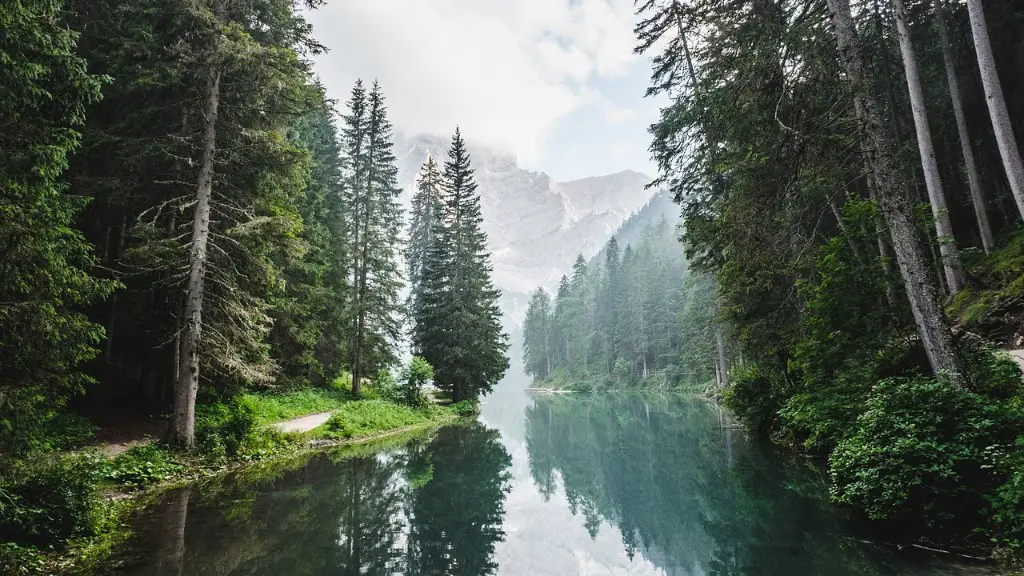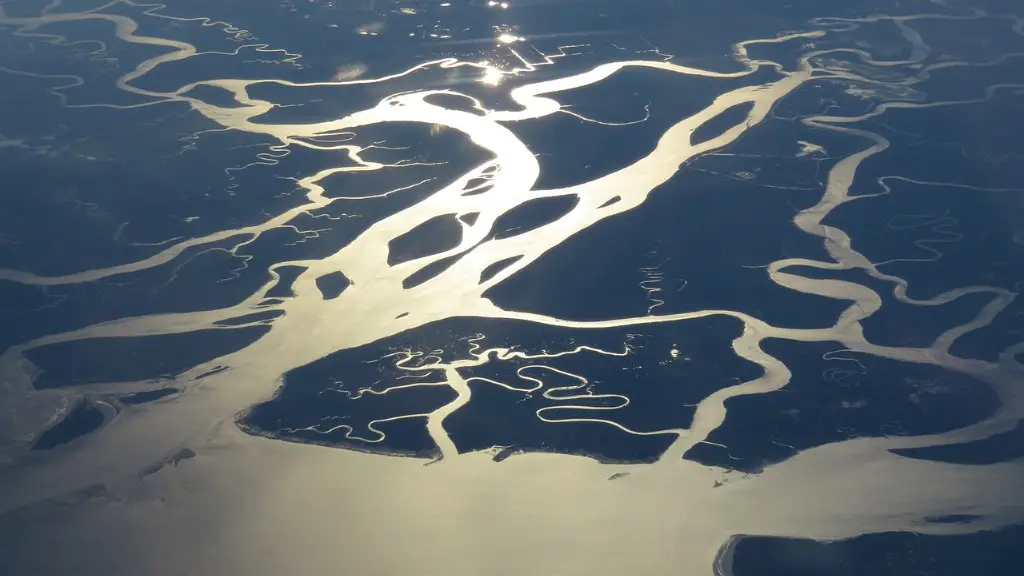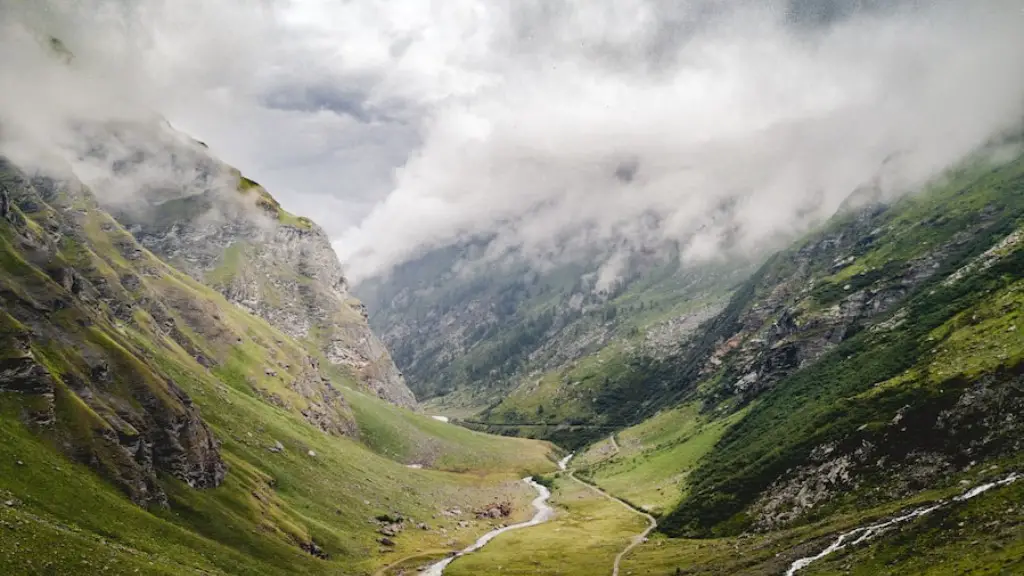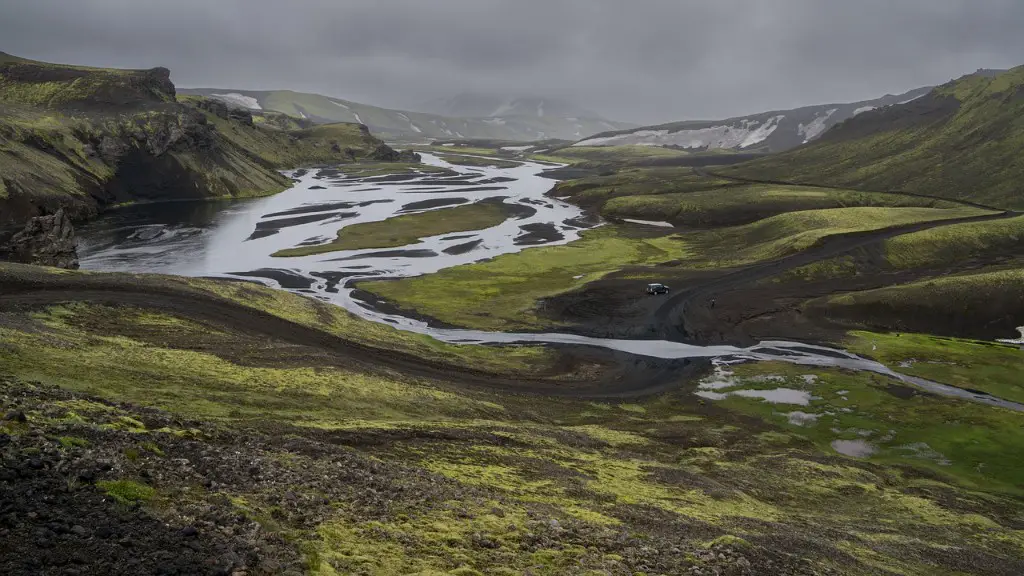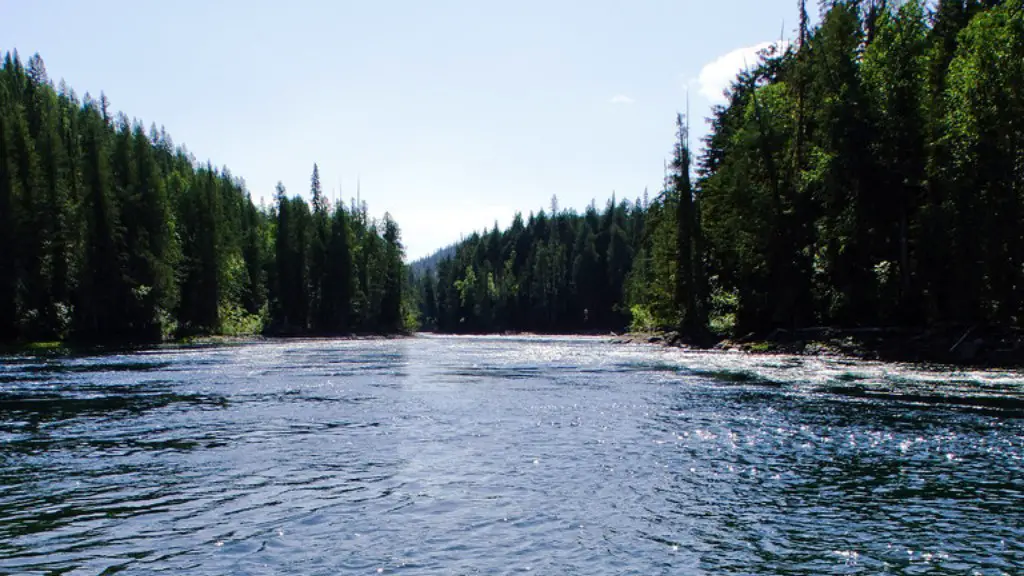The Mississippi River is one of the longest rivers in North America and is most commonly known for its thick and deep waters that span from Minnesota to Louisiana. It has played a very important role in the lives of many people living in states along the Mississippi, influencing their environment in ways that are both tremendous and subtle. In this article, we will go over what states the river meanders through, what impact it has, and lastly some interesting facts that you may not have known about this iconic river.
Overview
The Mississippi River passes through 10 states in the United States: Minnesota, Wisconsin, Iowa, Illinois, Missouri, Kentucky, Tennessee, Arkansas, Mississippi, and Louisiana. This 2,320-mile long river begins in Lake Itasca, Minnesota and flows south until it empties into the Gulf of Mexico near New Orleans, Louisiana. It is one of the most important economic and recreational resources in the country, and it provides energy, water, food, transportation, and other opportunities and necessities to state residents.
Impact
The importance of the Mississippi River is not just tied up in the history, culture, and environment of the states it runs through– it is also important for the entire nation. The river system helps to regulate water levels, debris, and pollutants, making it a key tool for water conservation and protection. The river is also an important navigational resource, used for recreational activities such as boating and fishing, as well as shipping of goods and services. In addition, the extensive wetlands that flank the river help to protect the shoreline from flooding and erosion.
The Mississippi River also means something different to each of the 10 states it flows through. Each state contains unique ecosystems and wildlife, and provides various recreational opportunities and economic benefits to residents living there. For instance, Minnesota is home to a diverse collection of animal and plant life, making it an obvious choice for a nature-lovers’ paradise. In Iowa and Illinois, the river helps to bring a sense of community and diversity to the cities located on its banks. In Missouri, the Mississippi River serves as an important water resource for the agricultural economy. In Tennessee and Kentucky, it provides beautiful scenery, along with vital water resources, to picturesque towns and cities located in the region. Finally, Louisiana is home to the mouth of this iconic river, serving as an iconic symbol for the people living along its banks.
Facts & Beliefs
Those who live in the states that the Mississippi River touches have a strong attachment to the iconic river. Many Native American tribes view this river as sacred ground, and stories of the river are often woven into traditional literature, music, art, and customs. Additionally, the river is steeped in history, having seen critical moments in the Civil War, World War II, and the modern-day civil rights movement.
In addition to the historic and cultural significance of the river, it is also home to many species of fish and aquatic life. Catfish, bass, walleye, and white perch are just some of the species that live in and around the waters of the Mississippi River basin. Not to mention the hundreds of bird species that make the river their home, including American Bald Eagles, Common Mergansers, Great Blue Herons, and American Shore Birds.
Controversy & Variations
The Mississippi River has been the cause of many controversies in the past. In the 1950s, the US Army Corps of Engineers began the ambitious project of channelizing the river, which caused serious disruptions to the natural environment and the wildlife in the region. Additionally, the river has been widely threatened by pollutants and runoff from large cities, including agricultural runoff and industrial pollutants. These pollutants can lead to decreased water quality and an increase in toxic algae blooms.
Finally, the Mississippi River has seen a number of variations over the years. In the past, there were multiple large floods that caused massive changes to the way the river flowed. These floods have been studied by scientists in order to help them better understand the dynamics of the river and its surrounding areas. More recently, climate change has prompted the US Army Corps of Engineers to make adjustments to their existing water management plans in order to avoid further flooding in the area.
Uses & Protection
The Mississippi River has been used for centuries by residents living in the riverside states, providing an important source of energy, water, transportation, and food. It has been used for fishing, navigation, transportation of goods and services, and recreation. Additionally, the river serves as an important source of hydropower energy, providing renewable energy to millions of people.
In order to protect this important resource, the US Army Corps of Engineers works tirelessly to assess and maintain the river’s health and safety. Feeding projects are implemented in order to reduce the occurrence of flooding, and scientific studies are conducted in order to better understand the changes in the hydrological systems in the area. In addition, the government has instituted regulations in order to protect the habitat of the river’s wildlife, monitoring levels of pollutants and other pollutants and pollutants that can cause harm to the water and aquatic life in the Mississippi and its surrounding states.
Famous People & Culture
The Mississippi River is iconic in culture and has been referenced in countless works of art and literature throughout history. Notable figures who lived and worked along the river include Mark Twain and William Faulkner, both of whom wrote extensively on the unique character and beauty of the river. Musicians such as Elvis Presley, Bob Dylan, and Jimmy Buffett have also written songs inspired by their experiences with the Mississippi River.
The river is also an important source of cultural identity for the states it passes through, providing an avenue for creative expression and activity. Mississippi, for instance, is recognized for its blues music, and along the banks of the river, it’s not uncommon to find jazz and ragtime musicians playing venues from coast to coast. Mississippi, Arkansas, and Louisiana are also known for their hot, spicy cuisine, and it’s said that the river played a part in introducing those flavors to the rest of the world.
Environmental Responsibility
The Mississippi River basin is an integral part of the United States and we must play our part in maintaining it. Citizens of the states along the river should be mindful of their personal actions, as well as practice activism for environmental protection. Minor measures, such as proper disposal of hazardous substances, reducing water waste, and conserving energy could have a major impact on the health of the river.
In addition, organizations like the Lower Mississippi River Conservation Committee and the Mississippi River Network are working to raise awareness, promote education on environmental issues, and advocate for regulations that will help protect and preserve the river. Finally, conservation groups are working with state and federal agencies to develop strategies for water compact negotiations, sustainable use of the river, and promote efficient water management.
Tourism & Recreation
In recent years, the Mississippi River has become a popular tourist destination, offering travelers plenty to see and do. Touring the historical sites, taking part in outdoor recreational activities, and enjoying the unique culture of the Mississippi River states are just a few of the experiences tourists can appreciate when visiting.
In addition, visitors of the river will find plenty of opportunities to take advantage of the river’s beauty. Camping, biking, fishing, and canoeing are popular activities along the river. The Mississippi River also offers plenty of other entertainment and educational opportunities, such as bird watching, historic tours, and museums.
Finally, there are many organizations that are dedicated to promoting the recreational use of the river and helping tourists and locals connect with the Mississippi River. For example, the National Mississippi River Museum & Aquarium in Dubuque, Iowa, provides visitors with a chance to explore and learn about the natural and cultural history of the region. Additionally, there are a number of festivals that take place throughout the year, bringing food, music, and art to the river.
